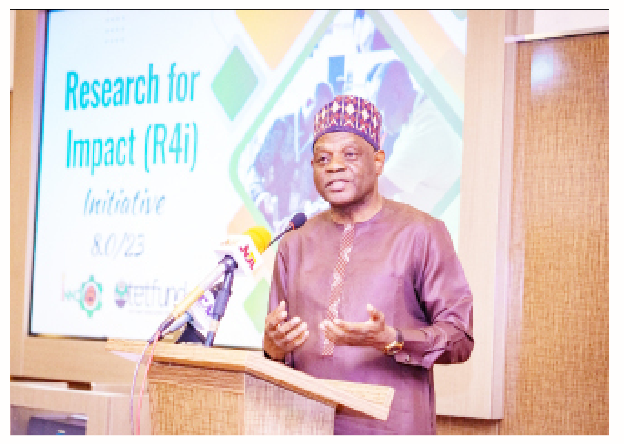For decades, Nigerian students and lecturers have struggled with unstable electricity across campuses in the country.
Cases of lecture halls going dark mid-presentation, laboratories halting experiments, ICT centres shutting down suddenly, and libraries being underpowered have been rampant.
In an era where education is inseparable from digital learning and research, erratic power supply has become one of the biggest obstacles in higher education.
Now, the Tertiary Education Trust Fund (TETFund) is stepping in with a bold intervention to change this narrative.
Under its 2025 Disbursement Guidelines, the Fund has allocated billions of naira for electrification projects across selected tertiary institutions nationwide, signaling a clear move toward energy independence on campuses.
In partnership with the Rural Electrification Agency (REA), TETFund has rolled out a plan to deploy solar mini-grids in universities and polytechnics across the country.
The choice of solar is to provides clean, reliable, and sustainable energy, reducing dependence on the national grid that has failed institutions for decades.
From Ibrahim Badamasi Babangida University in Niger State to Lagos State University in the South West, and from Nigeria Army University in Borno to Alvan Ikoku Federal University of Education in Imo, the electrification drive spans all six geopolitical zones.
A total of twelve institutions have been selected in this phase, each set to receive customised solar installations that can power classrooms, labs, libraries, hostels, and administrative blocks.
“This project is more than an energy solution. It is an investment in the future of Nigeria’s knowledge economy,” a senior TETFund official noted. “Stable power will unlock the full potential of teaching, research, and innovation in our tertiary institutions,” the Fund recently announced.
The electricity gap in higher institutions has long undermined the quality of learning. Many universities run diesel-powered generators that gulp scarce funds, while polytechnics and colleges have had to ration power, limiting students’ access to ICT facilities and research labs.
By prioritising renewable energy, TETFund’s initiative reduces costs in the long run, cuts carbon emissions, and guarantees consistent access to power for both academic and non-academic activities.
For students like those in Federal Polytechnic Oko in Anambra State, or Federal Polytechnic of Oil and Gas in Bonny, Rivers State, the difference will be immediate. Reliable power means uninterrupted research, extended library hours, functional ICT hubs, and safer, better-lit campuses.
True to the provisions of the Public Procurement Act 2007, TETFund and REA have invited competent contractors to bid for the projects.
Preference will be given to firms with experience in large-scale solar installations, particularly those that have delivered similar projects in Nigeria.
This not only ensures quality but also empowers local capacity. With each contract requiring proof of technical expertise, financial credibility, and compliance with national standards, the project is set to engage Nigerian engineers, renewable energy experts, and local suppliers.
The scope of works covers institutions across every region of the country. In the North Central, beneficiaries include IBB University Lapai in Niger State and Federal Polytechnic Nasarawa.
In the North East, Nigeria Army University Biu in Borno and Federal Polytechnic Mubi in Adamawa are selected. For the North West, North West University Kano and Federal Polytechnic Daura in Katsina are included. In the South East, Alvan Ikoku Federal University of Education in Imo and Federal Polytechnic Oko in Anambra will benefit.
The South South will be covered through Ambrose Alli University in Edo and Federal Polytechnic of Oil and Gas in Bonny, Rivers State, while in the South West, Lagos State University and Federal Polytechnic Ilaro in Ogun State complete the list. By covering all six zones, TETFund is sending a strong message that no region will be left behind in the quest for educational transformation.
With bid openings slated for September 1, 2025, and contractors expected to meet rigorous standards, stakeholders are optimistic that the projects will not suffer the fate of abandoned government contracts.
Civil society organizations and professional bodies have also been invited to monitor the process, ensuring transparency and accountability.
For many institutions, this could be the dawn of a new era, where students no longer read with torchlights in hostels, lecturers don’t cancel classes due to outages, and research doesn’t stall for lack of electricity.
TETFund’s electrification drive is not just about keeping the lights on. It is about powering dreams, innovation, and the future of Nigerian education.





